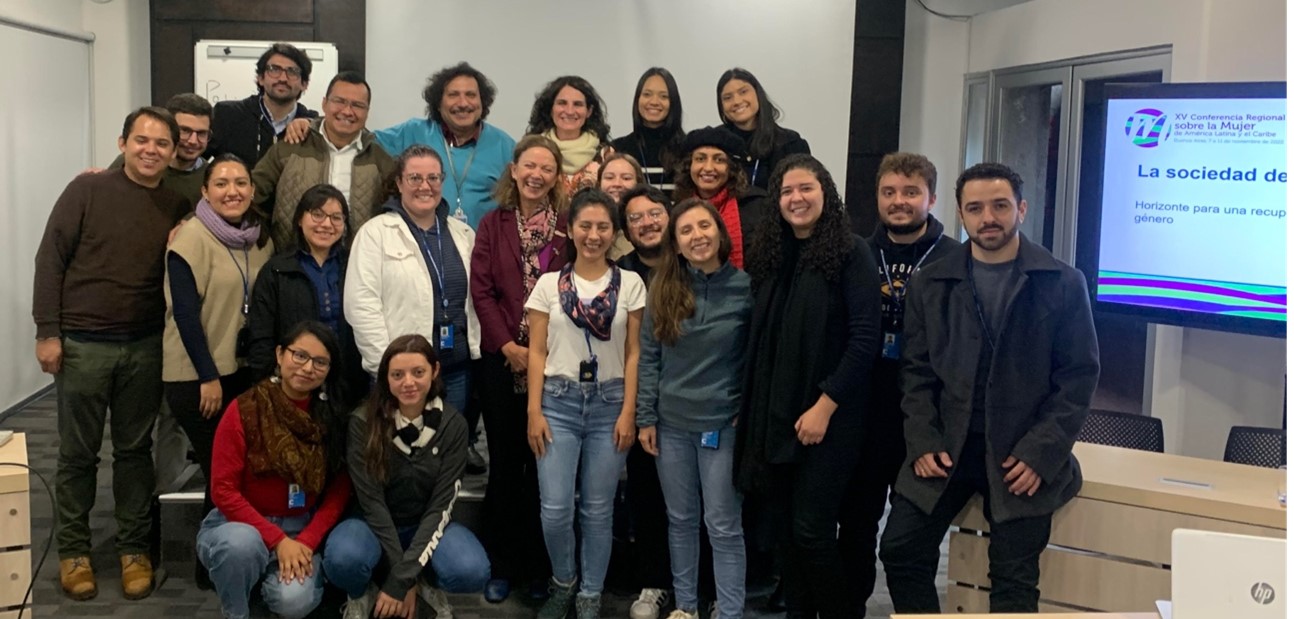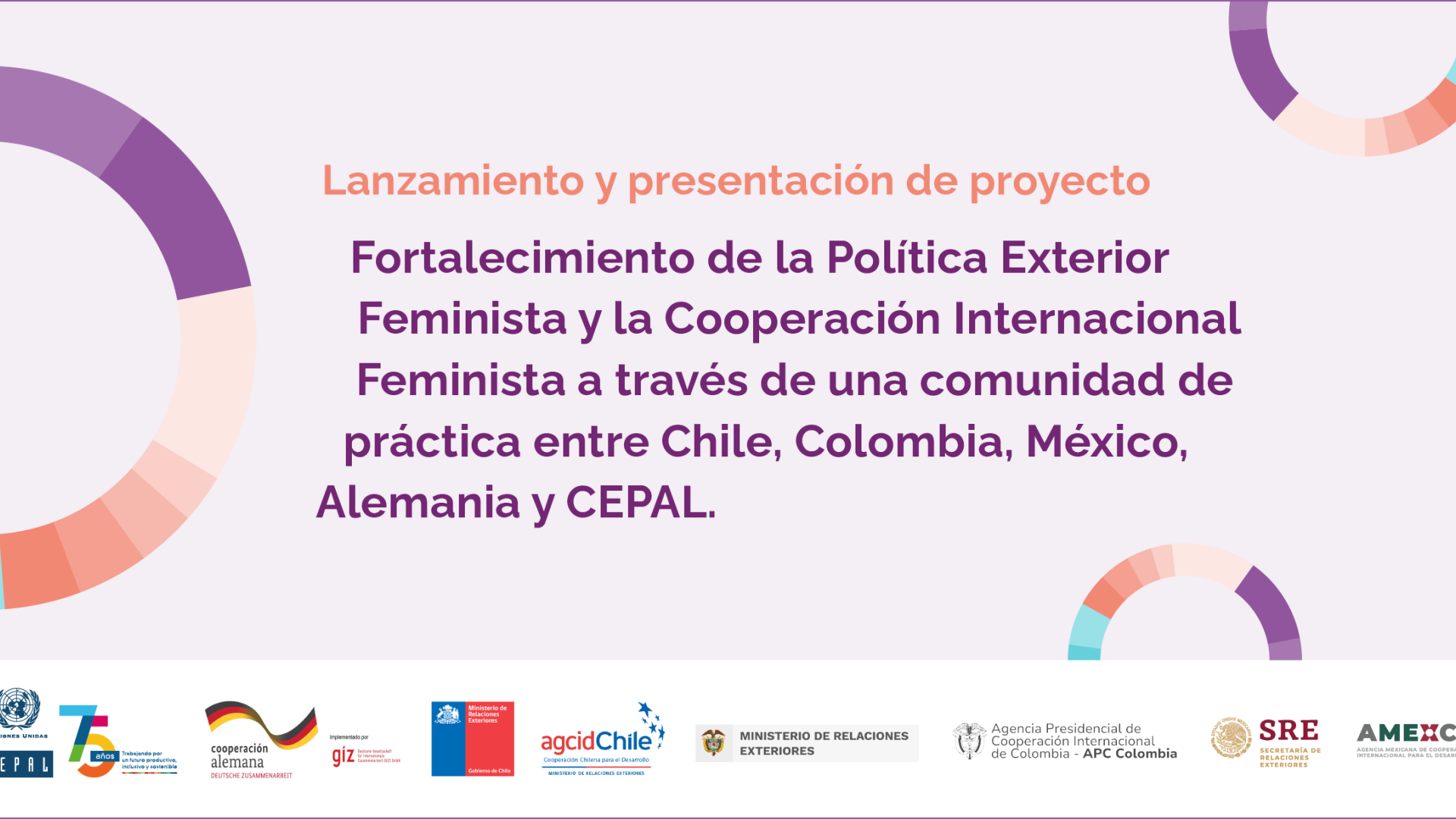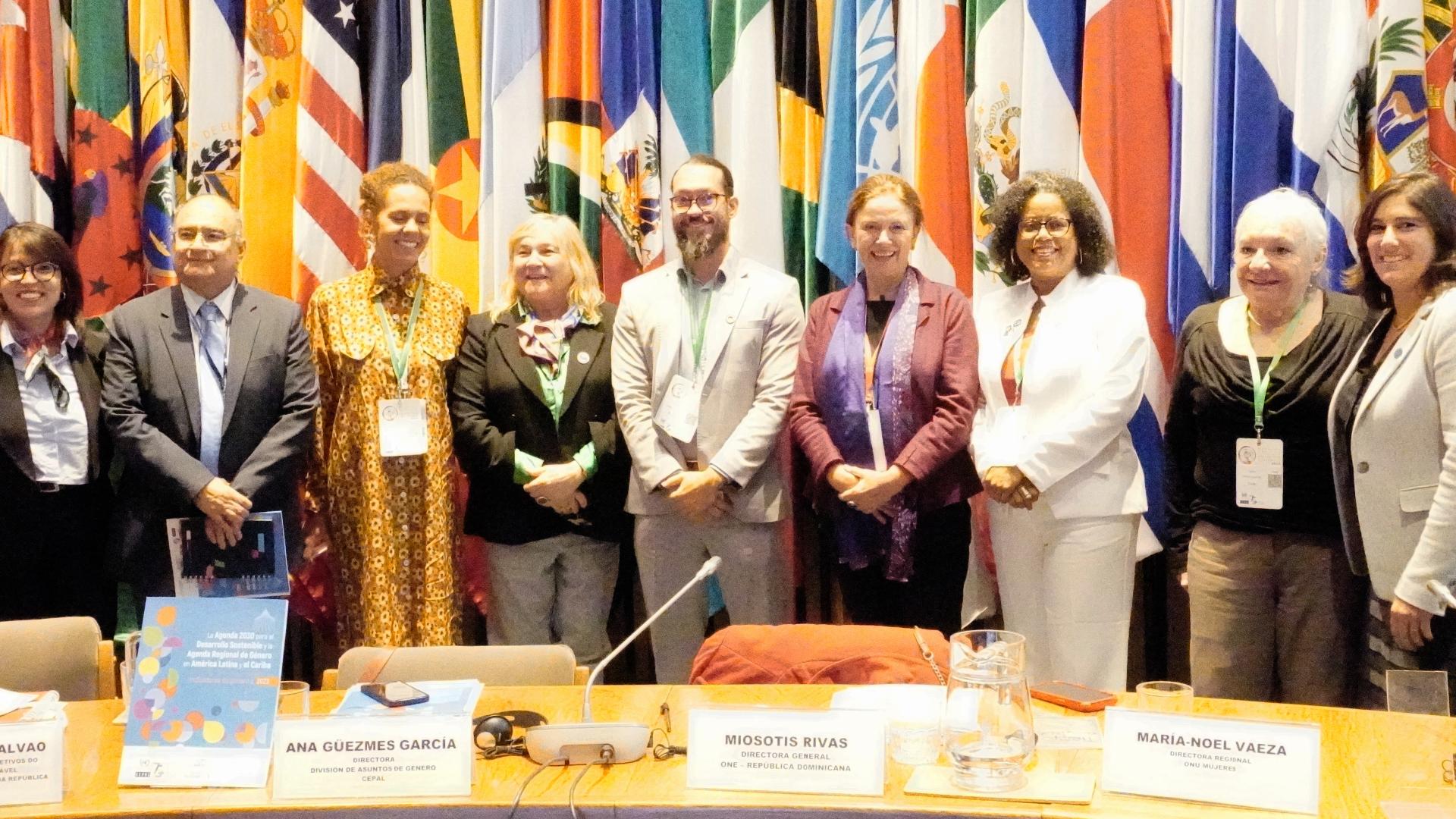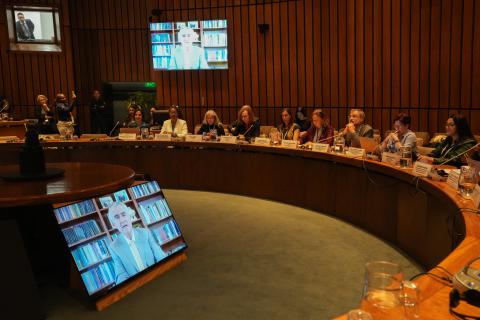Briefing note
41 students from 13 countries are participating in the 24th version of the ELADES-ECLAC Development Policy Studies Program. The training course is aimed at graduate students and takes place between July and September 2023 at ECLAC headquarters in Santiago, Chile
In her first intervention, Ana Güezmes made a presentation entitled "The Care Society: Horizon for a sustainable recovery with gender equality" (available on Spanish). She stressed the importance of developing comprehensive care policies and systems as a priority in the current cascading crisis context, which exacerbates historical gaps and structural knots of gender inequality. "We need to act with a sense of urgency and raise the level of ambition and scale in efforts. It is not a time for incremental and timid changes, but for bold and transformative policies that truly move the needles of development. It is time for transformational and civilizing changes such as those proposed by the care society," she pointed out.
She reflected on the need to value the value of care work, both paid and unpaid, performed mainly by women, both within the household and when provided by the State or the market. It is also essential to analyze care in a situated manner, considering the differentiated needs of people living in cities and rural areas. The Director of the DGA mentioned "it is not possible to think of a public development policy, including equality policies, if we do not take into account the analysis of the intersectionality of inequalities".
In a second instance, she presented the document "Advances in care regulations in Latin America and the Caribbean", which highlights care as a right and its background in international standards, in the Regional Gender Agenda and in national regulatory frameworks. The Director of the DGA closed her presentation by highlighting the transformative potential of the care society as a new style of development based on equality and sustainability, linked to an equitable distribution of power, resources and time between women and men. In turn, she mentioned the multiplier and beneficial effects for States of investing in care on economic growth, productivity, employment and the collection and improvement of general welfare, in addition to overcoming the sexual division of labor, which is one of the structural knots limiting women's autonomy.
This was followed by the presentation "Breaking the statistical silence to achieve gender equality by 2030"(available on Spanish) by Karen García, DGA Statistician. García highlighted the relevance of geo-referencing exercises on the demand and supply of care services in order to move towards a care society and emphasized the crucial role of gender statistics in this process.
She emphasized how the regional architecture favors the production of gender statistics and their comparability, and the relevance of generating alliances between organizations that produce and use the information. She also indicated the importance of strengthening efforts to produce gender statistics that consider care indicators with a territorial approach: "The region has tools to favor the comparability of measurements, facilitate the reporting of global, regional and national indicators, and contribute to the promotion and monitoring of public policies that revalue, reduce and redistribute care work," she said.
Finally, Ms. Ana Güezmes highlighted the importance of the link between the DGA-ECLAC and academia: "ECLAC's thinking is shaped by a permanent dialogue with academia, students and intergenerational dialogues on the most innovative proposals such as feminist economics, gender studies and critical sociology," she said. She also emphasized the importance of intergovernmental dialogue with ECLAC member states in the framework of the Regional Conference on Women in Latin America and the Caribbean, which she considers essential for advancing gender policies and women's autonomy in the region.
The Advanced Studies Program in Latin American Economies is aimed at young researchers with undergraduate or graduate studies from around the world interested in studying the Latin American development process. During the program, theoretical and empirical issues are addressed, with emphasis on the experience of Latin American and Caribbean countries.
More information about the Program of Advanced Studies in Latin American Economies at: https://www.cepal.org/en/news/eclac-school-latin-american-development-studies-has-opened-application-period-its-2023-program



